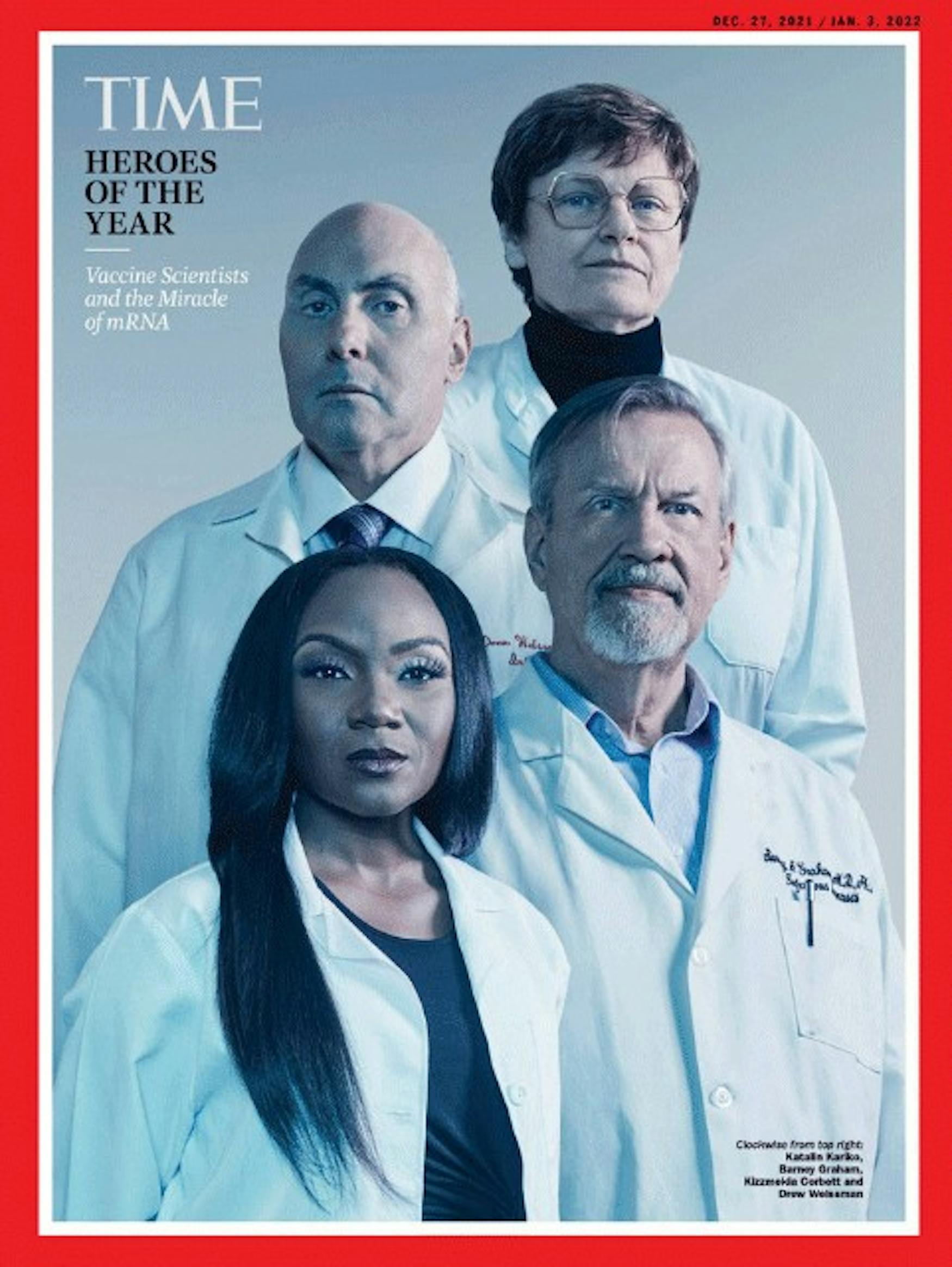Brandeis alum named a Hero of the Year
Drew Weissman ‘81, was given the honor of “Hero of the Year” by Time Magazine, a title he now shares with other vaccine scientists.
Brandeis alumnus Drew Weissman M.A. ’81, P’15 was named one of Time Magazine’s 2021 “Heroes of the Year” for his work that led to the development of vaccines for COVID-19. The list of honorees, which was published on Dec. 13, were all vaccine scientists, including Weissman and his research partner, Katalin Karikó. The other honorees were scientists Barney Graham and Kizzmekia Corbett.
Weissman is a physician-scientist at the Perelman School of Medicine at the University of Pennsylvania. He focuses on the study of RNA and innate immune system biology, and the “application of these findings to vaccine research and gene therapy,” according to his page on the University of Pennsylvania website. His and Karikó’s findings, which were the result of nearly a decade of research, were fundamental in the development of the mRNA-based COVID-19 vaccines.
Weissman and Karikó met at the University of Pennsylvania in 1997 during a “casual office conversation by the copy machine,” according to the article in Time magazine. Weissman, an immunologist and physician, had recently joined the university and started a lab that focused on developing a vaccine against HIV, as well as other diseases. Karikó had been making synthetic RNA and convinced Weissman to give it a shot as well. By combining efforts, they managed to work past the roadblocks that came up in their research, and during the 2000s, produced over 20 vaccines for diseases such as HIV, influenza, and Zika, that were nearly 100% effective.
During their research, Weissman and Karikó discovered that they could trick the immune system into thinking the body has contracted a virus by engineering modified messenger RNA and creating a system to deliver it, as messenger RNA transports instructions on producing proteins to cells. These findings were essential to the development of their vaccines, and they believed it would change everything. They submitted their research paper to the journal “Immunity” in 2005, but it did not receive the attention they had expected.
In the 15 years between the publication of the paper and the emergence of the COVID-19 pandemic, Weissman and Karikó continued to advocate for their findings on mRNA. Other scientists were beginning to see the promise of mRNA as well. Two of these scientists, Ugur Sahin and Özlem Türeci, were co-founders of BioNTech, a German company that Karikó joined in 2013. She led their mRNA program, setting the foundation for what would happen after the emergence of COVID-19. In January 2020, the genetic sequence of the coronavirus that causes COVID-19 was published by Chinese scientists, and BioNTech used that information to begin to work on a vaccine for the virus. They eventually partnered with Pfizer to develop the vaccine. In February 2021, Brandeis presented Weissman and Karikó the 2020 Lewis S. Rosenstiel award for their work on mRNA vaccines against SARS-CoV-2.
The Pfizer vaccine was the first vaccine for COVID-19 to be issued an Emergency Use Authorization by the Food and Drug Administration, which happened on Dec. 18, 2020. It was later approved by the FDA on Aug. 23, 2021 for individuals ages 16 and older. The Moderna vaccine is an mRNA vaccine as well.
As of Saturday, Jan. 29, 62.5% of the global population has received at least one dose of any vaccine for COVID-19, according to the New York Times. While Weissman and Kariko’s work was not the only element that led to the vaccine — the other two honorees took part in the next step — the vaccine would not have been possible without their work.



Please note All comments are eligible for publication in The Justice.